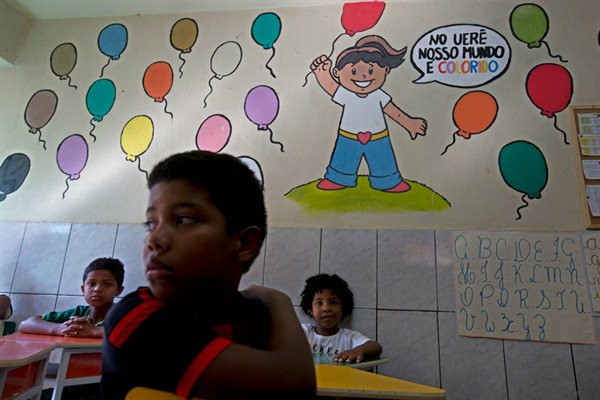Editor’s Note: This article is part of an ongoing series about education policy in various countries around the world.
In late September, Brazil’s Supreme Court narrowly ruled in favor of allowing religious education in public schools to be taught by people promoting their own faith, testing the country’s secular public education system. In an email interview, Simon Schwartzman, a Brazilian social scientist who has written extensively on the country’s education system and who serves on the board of the Institute for the Study of Labor and Society (IETS) in Rio de Janeiro, discusses the Supreme Court’s decision, the state of Brazilian education as a whole and recent efforts to incorporate affirmative action policies in higher education.
WPR: Brazil’s Supreme Court recently voted to authorize state schools to promote certain religions. What tension is there between secular and religious education in Brazil, and what are the implications of this decision?

